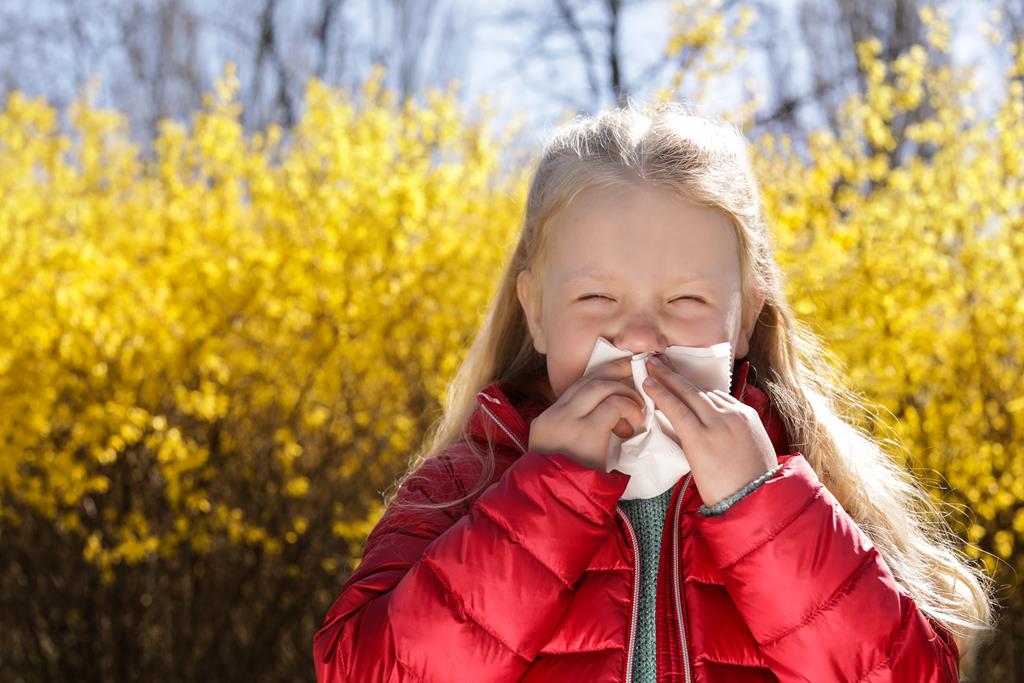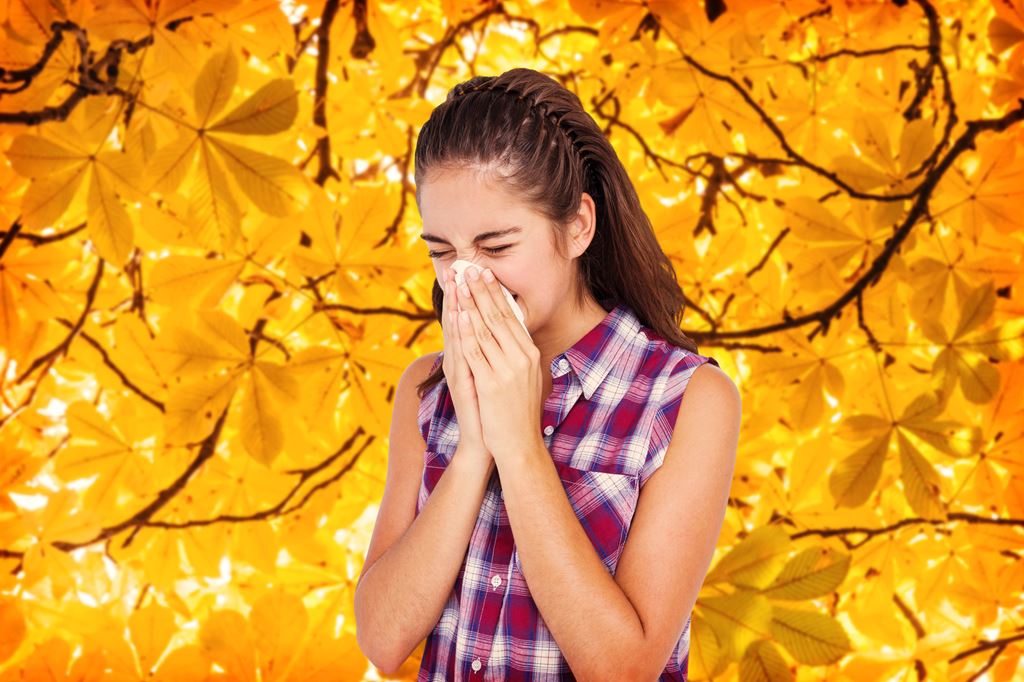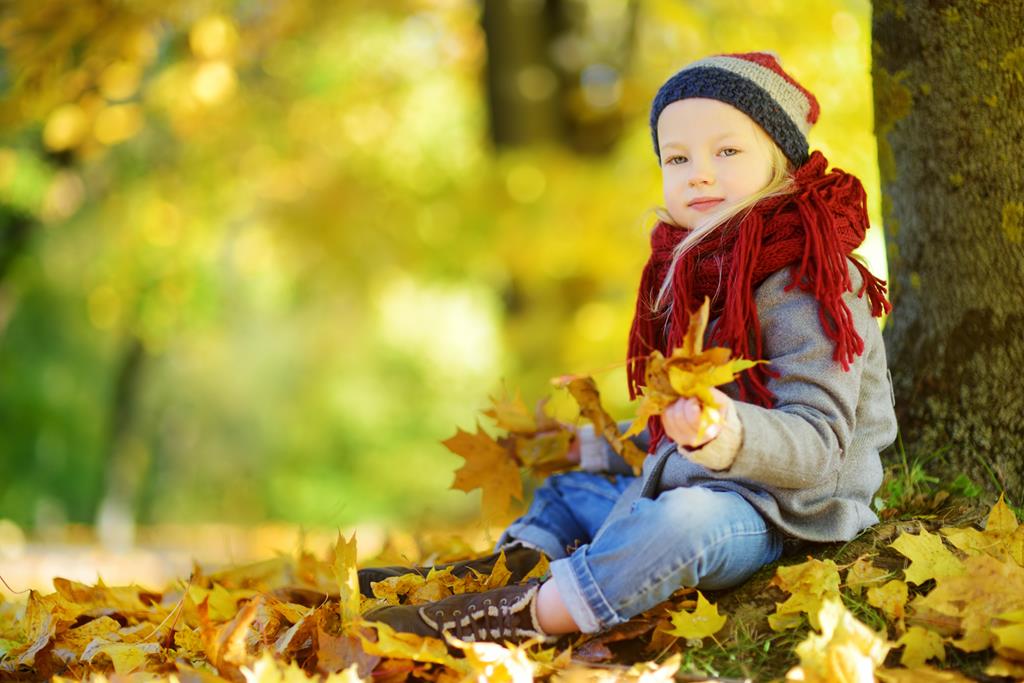Your Child and Seasonal Allergies: What You Should Know
While it is very unusual for a baby to develop seasonal allergies during the first year, it’s not impossible. Most cases of seasonal allergies appear between the ages of 3 and 5 years old. However, some children may experience allergy symptoms as young as 1 or 2 years old. If one parent has allergies, your child has a 25 percent chance of also having them. If both parents have allergies, your child has a 70 percent chance of having them. How can you tell if your child has allergies or just a cold?
Allergies vs. colds in children
The various symptoms that allergies and a cold have in common can make it hard to tell them apart. Congestion, a runny nose, sneezing, coughing, and watery eyes are typical for both conditions. If your baby’s mucus is clear and watery and their eyes seem watery as well, it’s likely your child is experiencing allergies. If their congestion is thick, cloudy, or discolored, and they have a wet-sounding or productive cough, it’s more likely to be a cold. With a cold, your child’s symptoms are usually at their most severe during the first few days and gradually improve, resolving within a couple of weeks. However, if your child is experiencing symptoms for several weeks or months, it’s more likely to be an allergy.

Allergy symptoms in children
When your child breathes in seasonal allergens, their immune system reacts by producing antibodies that prompt the release of histamine, which causes a variety of allergy symptoms:
- Itchy eyes – child may be rubbing their eyes, nose, or ears frequently
- Frequently breathing out of mouth
- Sneezing often
- Runny or stuffy nose
- Dark circles under eyes
- Watery, red, or puffy eyes
- A hacking, dry cough that produces clear mucus
- Wheezing sound when breathing*
- Irritability, restlessness, trouble sleeping
- Excessive fatigue
*If your child seems to be experiencing shortness of breath or indicates feeling tightness in the chest, call our office promptly for an appointment with Dr. Leung.

Is it possible for your child to run a fever with seasonal allergies?
If your child is running a fever, that is symptomatic of an infection such as an upper respiratory infection (a cold), an ear infection, or a sinus infection. While allergies can easily be confused with a sinus infection, there are key differences between the two. A sinus infection often starts as a cold and develops into a bacterial infection.
Symptoms of a sinus infection include:
- Fevers
- Thick, discolored nasal discharge
- Pain or tenderness around the nose, cheeks, jaw, eyes, forehead
- Nasal congestion and inflammation
How to treat seasonal allergy symptoms in babies and toddlers
It’s best to treat allergy symptoms in children, as leaving them untreated can lead to sinus and ear infections. There are a variety of child-safe OTC or prescription antihistamines that our office can recommend. Dr. Leung may also prescribe a nasal spray to reduce the allergic response and/or nasal passage swelling. If your child’s allergies are severe, Entirely Kids Pediatrics can refer you to an allergist to determine what is causing the symptoms and recommend effective and safe treatments.

Tips to prevent and relieve seasonal allergy symptoms:
- Keep windows closed to limit the entrance of pollen into your home.
- Have family members remove their shoes when they come inside the home to reduce the pollen tracked inside.
- Replace the filter in air conditioning vents regularly.
- Dust your home frequently.
- Wash bed linens weekly in hot water.
- Use a vacuum that has a HEPA filter.
- Note local pollen counts and limit outdoor activities on days when pollen levels are high.
- Bathe your child when they are home for the day to wash away pollen particles in their hair on their skin.
- Wash clothes (including jackets and other outerwear) regularly to remove pollen. Use your dryer as opposed to hanging items outdoors to dry.
- If you have a pet, bathe or wipe them down regularly, as fur can hold pollen.
If your child has been experiencing symptoms for weeks or their symptoms seem to be getting more severe, please make an appointment with Dr. Leung. There are other types of allergies such as food and indoor allergies, and an examination can help Dr. Leung determine if these are a possibility as well. It’s important to receive a proper diagnosis, along with recommendations for kid-safe medications or treatments. Entirely Kids Pediatrics provides expert guidance and care to help manage your child’s seasonal allergies and other health concerns.
